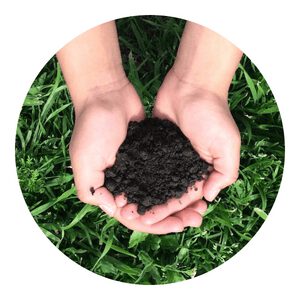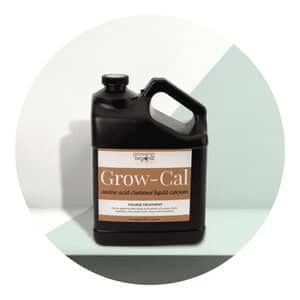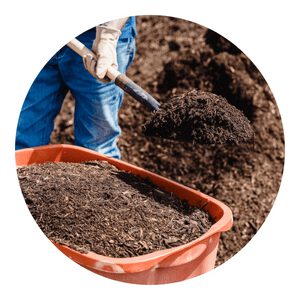Virginia Gardening: Maximizing Your Harvest with the Best Fruits & Vegetables to Grow
Gardening is an enjoyable pastime for many, and it can be even more rewarding when done sustainably.
With a few simple tips and tricks, anyone in Virginia can learn to grow their own organic vegetables.
Whether you’re a beginner or a seasoned green thumb, this guide will provide you with the basics of sustainable gardening in Virginia.
From picking the right soil to avoiding potential pests, we’ll cover all the essential topics of successful organic vegetable gardening.

Virginia Gardening Menu
Virginia's climate and soil conditions
When it comes to gardening in Virginia, understanding the climate and soil conditions of the region is essential for a successful harvest.
With its humid subtropical climate, Virginia sees hot and humid summers, as well as short and mild winters.
Average temperatures range from lows of around 20 degrees Fahrenheit in January to highs of 90 degrees Fahrenheit in July.
The state’s soils vary greatly depending on location but are mainly comprised of loamy silt with some clay content.
It is important to keep these climatic and soil conditions in mind when planning your garden; certain fruits and vegetables simply won’t grow properly under certain conditions.
For instance, tomatoes thrive comfortably during the summer months when temperatures are warmer but can easily become overwhelmed by too much heat or humidity if not monitored closely.
Knowing what crops will fare best given your local climate is key for achieving optimum yield potential come harvest time!
Choosing the Right Fruits & Vegetables
Choosing the right fruits and vegetables to grow in Virginia requires considering a few key factors such as your gardening skills, the climate and soil conditions in your area, and the space available for planting.
Here are some steps you can follow to make the best selection for your garden:
Determine your climate zone – Virginia is located in USDA hardiness zones 7-9, which means that you can grow a variety of fruits and vegetables.
It’s important to know your specific hardiness zone to determine which plants will thrive in your area.
Consider your soil type – The type of soil in your area can greatly impact the success of your garden.
If your soil is heavy and poorly drained, consider growing plants that are well suited to these conditions, such as sweet potatoes or okra.
If your soil is lighter and well-drained, consider growing plants that need good drainage, such as strawberries or tomatoes.
Consider your gardening skills – Consider your level of experience and the amount of time and effort you are willing to dedicate to your garden.
Some plants, such as blueberries, require more attention and care, while others, such as squash, are more low maintenance.
Determine the amount of sunlight – The amount of sunlight your garden receives will greatly impact which plants will thrive.
Most fruits and vegetables need at least 6 hours of direct sunlight each day, so be sure to choose plants that are well-suited to your specific light conditions.
Consider the amount of space available – The size of your garden will impact the number of plants you can grow and the types of plants you can grow.
If you have a small space, consider growing crops in containers or consider plants that are well suited to smaller gardens, such as cherry tomatoes or strawberries.
By considering these factors, you can choose the right fruits and vegetables to grow in Virginia, ensuring a successful and bountiful harvest.
Keep in mind that the best way to determine which plants will thrive in your specific area is to speak with local gardening experts or to consult a local gardening book or website.
Best fruits and vegetables to grow in Virginia
Virginia is a state with a diverse climate, ranging from the coastal plain to the Appalachian Mountains, which provides ample opportunity for growing a variety of fruits and vegetables.
Here are some of the best options to consider:
Tomatoes – Tomatoes are a staple in many gardens and are easy to grow in Virginia.
They can be grown in containers or in the ground and do well in the state’s warm, humid summers.
Peppers – Both sweet and hot peppers can be grown in Virginia and do well in the state’s warm summer weather.
They can be grown in containers or in the ground and are easy to care for.
Blueberries – Virginia’s climate provides the ideal growing conditions for blueberries, with the state being one of the top blueberry producing states in the country.
They do well in acidic soil and need plenty of sun.
Strawberries – Strawberries are another popular fruit to grow in Virginia, and the state is known for producing high-quality strawberries.
They need well-draining soil and plenty of sunlight to thrive.
Squash – Both summer and winter squash do well in Virginia and are easy to grow in the state’s warm summer weather.
They can be grown in containers or in the ground and are a great addition to any vegetable garden.
Sweet Potatoes – Virginia is known for producing high-quality sweet potatoes, and they are a staple in many gardens in the state.
They do well in warm, humid conditions and need well-draining soil.
Okra – Okra is a staple in Southern cuisine and is easy to grow in Virginia.
It thrives in warm, humid conditions and is a great option for those looking to add a new vegetable to their garden.
Virginia provides ideal growing conditions for a variety of fruits and vegetables, and these are just a few of the many options to consider when starting a garden in the state.
Whether you are growing in containers or in the ground, there is sure to be a crop that will thrive in your area.
Planning Your Garden
Starting an organic garden in Virginia is a great way to grow fresh, healthy fruits and vegetables for your family.
Here are some steps you can follow to plan your garden:
Determine the size and location of your garden – Consider the amount of space you have available and choose a location that has at least 6 hours of direct sunlight each day.
If you have limited space, consider using raised beds or containers for your plants.
Conduct a soil test – Before planting, it’s important to test your soil to determine its pH level and nutrient content.
This will help you determine which soil amendments, such as compost or organic fertilizers, are needed to provide the best growing conditions for your plants.
Choose your plants – Select plants that are well-suited to the climate and soil conditions in your area.
Consider factors such as the amount of sunlight and space available, as well as your personal preferences and the amount of maintenance you are willing to do.
Create a garden layout – Map out the location of your plants, taking into consideration factors such as plant height, spread, and sunlight requirements.
This will help you determine the best placement for each plant, ensuring they receive the right amount of light and space to grow.
Choose organic methods – Organic gardening involves using natural methods to control pests, diseases, and weeds.
Consider using natural pest control methods, such as companion planting, or using organic fertilizers and soil amendments.
Start small and be patient – It’s important to start small and be patient when starting an organic garden.
Don’t try to grow too many plants at once, as this can be overwhelming, and focus on planting a few varieties that you and your family will enjoy eating.
By following these steps, you can plan a successful and sustainable organic garden in Virginia, providing fresh, healthy fruits and vegetables for your family for years to come.
Keep in mind that starting an organic garden takes time and patience, but the rewards of growing your own food are well worth the effort.
Verdant gardens in Virginia, so divine. From the soil our harvest we find Tomatoes plump and juicy sweet, Apples ripe on branches near. Melons, peppers and beets Grow tall under bright sunlit sky. For best results, time to plan and sow Makes for a fruitful yield come autumn's glow.
Chappy The Gardener
Growing Techniques
Growing fruits and vegetables in Virginia requires a combination of proper soil preparation, planting techniques, and maintenance practices.
Here are some tips to help you grow a successful and bountiful garden in Virginia:
Soil preparation – Before planting, it’s important to amend the soil with organic matter, such as compost or aged manure, to improve soil structure and fertility.
A soil test will also help you determine which nutrients, such as nitrogen, phosphorus, and potassium, your soil may be lacking, and which soil amendments are necessary to provide the best growing conditions for your plants.
Proper planting techniques – When planting, make sure to choose plants that are well-suited to the climate and soil conditions in your area.
Consider factors such as plant size, sunlight requirements, and spacing.
It’s also important to plant at the proper depth, with the crown of the plant just above the soil line, and to provide adequate water after planting.
Watering – Proper watering is essential for growing healthy and productive fruits and vegetables in Virginia.
Water deeply and regularly, being careful not to overwater, which can lead to root rot.
Consider using a drip irrigation system or a soaker hose to conserve water and minimize plant stress.
Mulching – Mulching your garden helps retain moisture, suppress weeds, and regulate soil temperature.
Use a 2-3 inch layer of organic mulch, such as leaves, straw, or grass clippings, around the base of your plants.
Fertilizing – Regular fertilization is important for promoting healthy growth and maximum yield.
Consider using organic fertilizers, such as compost or aged manure, to provide the necessary nutrients for your plants.
Pest and disease control – Organic gardening involves using natural methods to control pests, diseases, and weeds.
Consider using companion planting, crop rotation, and natural pest control methods, such as beneficial insects, to maintain a healthy and productive garden.
By following these methods and techniques, you can grow a successful and bountiful garden of fruits and vegetables in Virginia.
Keep in mind that gardening is a continual learning process, and it’s important to continue to educate yourself and experiment with different techniques to find what works best for you and your garden.
Growing Methods
Growing fruits and vegetables in Virginia can be done using various methods, including organic soil, greenhouse, raised beds, hydroponic, and aquaponic systems.
Here is a brief overview of each method:
Organic soil – Organic soil gardening involves using natural methods to grow plants in soil that has been amended with organic matter, such as compost or aged manure.
This method is popular among those who prefer to grow their plants using natural and sustainable methods.
Greenhouse – A greenhouse is a controlled environment that provides protection from weather and pests, and allows you to grow plants year-round.
Greenhouses are ideal for growing sensitive or exotic plants, or for starting seedlings early in the season.
Raised beds – Raised beds are elevated garden beds that are filled with soil and organic matter.
They are a great option for gardeners with limited space, as they allow for better drainage and easier access to the plants.
Hydroponic – Hydroponic gardening involves growing plants without soil, using a nutrient-rich water solution instead.
This method is ideal for growing plants that are difficult to grow in soil, or for those who want to maximize yields in a limited space.
Aquaponic – Aquaponic gardening combines hydroponic and aquaculture (fish farming) techniques.
In this system, fish are raised in a tank, and their waste provides nutrients for the plants growing in the hydroponic system.
This method is sustainable and efficient, as the waste produced by the fish is used to fertilize the plants, and the plants in turn clean the water for the fish.
Each of these methods has its own advantages and disadvantages, and the best method for you will depend on your individual needs and goals.
Consider factors such as the amount of space and time you have available, your personal preferences, and the types of plants you want to grow when choosing the right method for your garden.
Organic Fertilizing
Organic fertilizing is an important step in any successful garden.
When organic fertilizers are used, they help to promote healthy soil and nutrient levels that can lead to increased yields of fruits and vegetables in Virginia gardens.
Organic fertilizer releases vital nutrients into the soil slowly over time, allowing plants to have access to a steady stream of nutrition throughout the growing season.
This helps maintain healthy roots and gives plants more energy for growth and production, resulting in larger crops than if chemical-based fertilizers were used instead.
Additionally, organic fertilizer helps reduce environmental pollution by eliminating synthetic chemicals from entering water sources or damaging nearby ecosystems.
Types of organic fertilizer and how to use them in your garden
Organic fertilizers are a great way to provide the necessary nutrients for your garden while also improving soil structure and fertility.
Here are some common types of organic fertilizers and how to use them in your garden in Virginia:
Compost – Compost is a mix of decomposed organic matter that provides a slow-release source of nutrients for your plants.
To use compost in your garden, simply spread a 2-3 inch layer on top of the soil and till it in.
You can also add compost to your soil when planting, to provide an immediate boost of nutrients.
Manure – Manure from chickens, cows, or horses is a great source of nitrogen, phosphorus, and potassium, the three primary macronutrients that plants need to grow.
To use manure in your garden, mix it into the soil before planting, or spread a 2-3 inch layer on top of the soil and till it in.
It’s important to age the manure for at least six months before using it in your garden, as fresh manure can contain harmful pathogens that can harm your plants.
Blood meal – Blood meal is a powder made from dried and ground blood, and is an excellent source of nitrogen.
To use blood meal in your garden, sprinkle it around the base of your plants, or mix it into the soil before planting.
Bone meal – Bone meal is a powder made from ground bones, and is a great source of phosphorus.
To use bone meal in your garden, sprinkle it around the base of your plants, or mix it into the soil before planting.
Kelp meal – Kelp meal is a powder made from seaweed, and is a good source of a variety of micronutrients that plants need to grow.
To use kelp meal in your garden, sprinkle it around the base of your plants, or mix it into the soil before planting.
Rock Phosphate – Rock Phosphate is a slow-release source of phosphorus, and is often used as a soil amendment.
To use rock phosphate in your garden, mix it into the soil before planting, or sprinkle it around the base of your plants.
It’s important to use organic fertilizers in the right amount, as over-fertilizing can harm your plants and the environment.
A soil test will help you determine which nutrients your soil is lacking, and how much fertilizer to use.
By using organic fertilizers, you can help your plants grow strong and healthy, and promote sustainable gardening practices in your garden in Virginia.
Tips for maintaining healthy soil with organic fertilizing practices
Maintaining healthy soil is a crucial step in maximizing your harvest of fruits and vegetables.
Organic fertilizers are one way to boost the health of the soil without introducing chemicals that can harm plants, people, and animals.
Here are some tips for using organic fertilizers to maintain healthy soil in your Virginia garden.
Organic fertilizers come from living matter like manure, compost, seaweed extract, and bone meal.
These will slowly release nutrients over time into your garden’s soil as they break down naturally.
To maximize their benefits, you should incorporate them into the top layer of the soil before planting or apply them every few weeks during growing season as a top dressing around existing plants.
For best results use fresh organic fertilizer when possible – older sources may have lost some of their potency due to exposure to air and water.
Pest Control
Pest Control is an essential part of gardening in Virginia and should not be overlooked.
A successful harvest requires proper pest management, otherwise you may end up losing your crops to hungry insects.
There are several steps that can be taken to protect your garden from the damaging effects of insects such as using row covers, companion planting, and creating a healthy soil environment.
With some thoughtful planning and preparation, pest control becomes an easy task and your veggies will thrive!
Common pests in Virginia and how to control them
Growing organic fruits and vegetables in Virginia can be challenging, as many common pests can damage your crops.
Here are some common pests in Virginia and how to control them:
Cabbage worms – Cabbage worms are the larvae of the cabbage butterfly, and they feed on the leaves of brassica plants such as broccoli, cauliflower, and cabbage.
To control cabbage worms, hand pick them off your plants, or use floating row covers to protect your plants.
Aphids – Aphids are small, soft-bodied insects that feed on the sap of plants, causing stunted growth and yellowing of leaves.
To control aphids, you can use a strong stream of water to knock them off your plants, or introduce natural predators such as ladybugs or lacewings into your garden.
Squash bugs – Squash bugs are a common pest in Virginia, and they feed on the leaves and stems of squash and pumpkin plants.
To control squash bugs, hand pick them off your plants and destroy their eggs, or use floating row covers to protect your plants.
Tomato hornworms – Tomato hornworms are large, green caterpillars that feed on the leaves and fruit of tomato plants.
To control tomato hornworms, hand pick them off your plants, or use a biological control such as the parasitic wasp.
Cutworms – Cutworms are the larvae of moths, and they feed on the stems of seedlings and young plants.
To control cutworms, you can use collars made from cardboard or paper to protect your seedlings, or sprinkle diatomaceous earth around the base of your plants.
Cucumber beetles – Cucumber beetles are yellow and black striped beetles that feed on the leaves, stems, and fruit of cucumber and squash plants.
To control cucumber beetles, use floating row covers to protect your plants, or hand pick them off your plants.
By understanding the common pests in Virginia, you can take steps to prevent them from damaging your crops and reduce the need for harsh chemicals.
Organic pest control methods are safe, effective, and better for the environment, and they can help you grow healthy and productive crops in your organic garden in Virginia.
Using companion planting and natural predators to control pests
Companion planting and using natural predators are effective methods for controlling pests in your organic garden in Virginia.
Companion planting involves planting different crops together that have beneficial relationships, such as deterring pests, improving soil health, and increasing crop yield.
Here are some examples of companion planting in Virginia:
Marigolds – Marigolds are known for their ability to deter pests, including nematodes, and they also help to improve soil health by increasing the levels of nitrogen.
Plant marigolds near your vegetables to help control pests and improve the health of your soil.
Garlic and onions – Garlic and onions release strong odors that can deter pests, such as aphids and Japanese beetles.
Plant garlic and onions near your vegetables to help protect them from pests.
Basil – Basil is known for its ability to deter pests, such as mosquitoes and flies, and it also has a positive impact on the growth of tomatoes.
Plant basil near your tomatoes to help control pests and improve the health of your plants.
Using natural predators is another effective way to control pests in your organic garden in Virginia.
Natural predators, such as ladybugs, lacewings, and praying mantises, feed on common pests and help to keep their populations in check.
To attract natural predators to your garden, plant a variety of flowering plants that provide nectar and pollen, and provide habitat for these beneficial insects.
By using companion planting and natural predators, you can reduce the need for chemical pesticides and fertilizers in your organic garden in Virginia.
These methods are safe, effective, and better for the environment, and they can help you grow healthy and productive crops.
Choosing organic methods for pest control
When growing organic fruits and vegetables in Virginia, choosing organic methods for pest control is essential for maintaining a healthy and sustainable garden.
Organic pest control methods are safe, effective, and better for the environment, and they can help you grow healthy and productive crops without using harmful chemicals.
Here are some organic methods for pest control in Virginia:
Crop rotation – Crop rotation involves planting different crops in different areas of your garden each year.
This helps to prevent pests from becoming established in one area, and it also helps to improve soil health by adding different nutrients to the soil.
Floating row covers – Floating row covers are lightweight covers that are placed over plants to protect them from pests.
They provide a physical barrier that pests cannot penetrate, and they also help to maintain soil moisture and temperature levels.
Hand picking – Hand picking is a simple and effective method for removing pests from your plants.
This involves checking your plants regularly for pests, and removing them by hand or with a tool such as a vacuum or trowel.
Natural predators – Encouraging natural predators, such as ladybugs, lacewings, and praying mantises, is a safe and effective way to control pests in your garden.
These beneficial insects feed on common pests, such as aphids and mites, and help to keep their populations in check.
Soap and oil sprays – Soap and oil sprays are effective for controlling soft-bodied pests, such as aphids, mites, and spider mites.
These sprays work by breaking down the pests’ exoskeleton and causing dehydration.
Neem oil – Neem oil is derived from the neem tree and is a natural pesticide that is effective against a wide range of pests, including aphids, mites, and whiteflies.
It works by disrupting the growth and reproduction of pests, and it is safe for humans and animals.
By using these organic methods for pest control, you can keep your garden healthy and productive, and reduce the need for harmful chemicals.
These methods are safe, effective, and better for the environment, and they can help you grow healthy and sustainable crops in your organic garden in Virginia.
In conclusion, Virginia’s climate is a great opportunity for gardeners to take advantage of the region’s delicious fruits and vegetables.
With a little bit of planning, research, and hard work, you can maximize your harvest by selecting the right varieties.
Not only will you get to enjoy delicious produce straight from your backyard, but you’ll also be helping to support the local economy and environment.
Finally, remember to maintain your plants with regular weeding and watering sessions so that you get the best results possible.
Helps Us Grow – Share If You Like




















